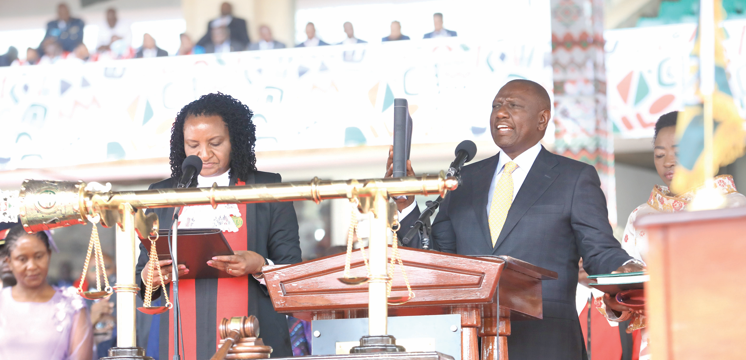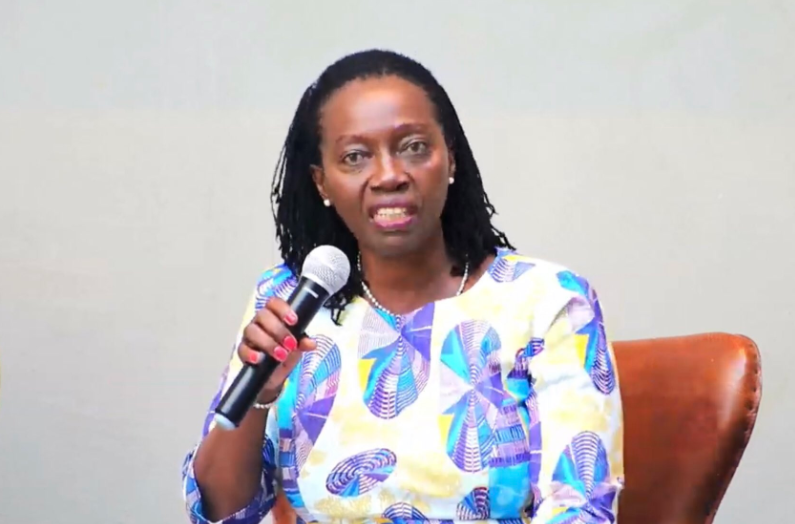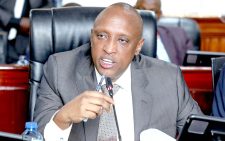It’s mixed bag of fortunes as Ruto marks one year

At 12.44pm on this day one year ago, William Ruto laid his hand on the Bible as he took the oath office as Kenya’s fifth President.
Under a searing heat precipitated by the then raging drought, the new President outlined a raft of promises: Bringing down the cost of living, creating jobs for the jobless millions and addressing other issues affecting “hustlers”.
“I will work with all Kenyans irrespective of who they voted for,” the then 56-year-old, who had christened himself as a “chief hustler”, said in the inauguration speech, as he vowed to unite a polarised country.
The country was pregnant with expectations, amid rising political temperatures and high cost of living.
As part of the measures to bring down the cost of living, the new President promised that he would ensure the exchange rate of the dollar would drop from a high of Sh135 to less than Sh120. Kenya was to introduce a scheme through which fuel would be bought in local currency.
“This is a Mwai Kibaki reincarnate,” quipped one United Democratic Alliance (UDA) supporter who had attended the inauguration ceremony at the Moi International Sports Complex, Kasarani, in reference to Kenya’s third president who had restored the country’s economy after years of ruin under the Kanu party of second President Daniel arap Moi.
Subsidies end
Determined to send clear signals that he was to be a hands-on leader driven by a desire to serve Kenyans, Ruto issued 13 key executive orders on his first day in office.
They included graduated NHIF payments and restructuring of the health insurer, swearing-in of the six rejected judges and adequate judiciary funding, end of unga and fuel subsidies, financial autonomy of the police, national administration officers to keep off politics; slashed fertilizer prices, end of Credit Reference Bureau blacklisting and review Central Bank of Kenya (CBK) guidelines of Sh1 million transactions.
Other directives that were immediately implemented included creation of Hustlers Fund, construction of low cost housing, reverting clearing of cargo to Mombasa, prioritising payment of pending bills and review of the Competency-Based Curriculum (CBC).
“He came to power on a platform of heavy promises, some of which were impractical. Whereas we can say he has implemented a number of them, his score is low because he has not decisively tackled the real thing that affects the common man… reducing the cost of living,” says Prof Macharia Munene, a political analyst.
The President has appeared to backtrack on some of the pre-election pledges, particularly on his promise to reduce the high cost of living within the first 100 days in office.
On the campaign trail, Ruto and his deputy Rigathi Gachagua endeared themselves to the electorate with their promise of a complete break from the past and ushering in a new beginning.
Ruto, for instance, pledged to deal with the debt burden that the country incurred under the previous administration. He said his administration would drastically cut back on borrowing.
On the sharing of resources, Ruto promised to review the formula used to share resources between its two levels of government and have it based on the population of constituencies.
Inflation rate
In line with his vision to focus on the downtrodden, he promised to implement a contributory benevolent fund for families of fallen or terminally ill soldiers, including the mentally ill.
The President pledged to design affordable housing mortgages for public officials, particularly the police as well as introduce and insurance cover for police officers.
Elected on the promise of a “Bottom-Up Economic Transformation,” President Ruto immediately embarked on several early actions in line with his pledges.
While the President has been seen to perform well on the international arena, he has had hits and misses on the local scene.
The Hustlers’ Fund, which is central to Ruto’s economic transformation plan, has been disbursing loans to businesses in the informal sector. So far, more than Sh33.3 billion has been disbursed to at least eight million people with low-interest loans.
The government has also supplied subsidized fertilizer to over seven million farmers to address food insecurity.
Ruto inherited a struggling economy caused by external shocks of rising inflation, high-interest rates and Covid-19, with debt servicing taking up 50 per cent of the government’s revenue.
Inflation, especially fuel and non-food-non-fuel items, continues to trend upward. The country’s inflation rate has risen above nine per cent since Ruto’s inauguration, the highest since July 2017.
Central Bank has responded to rising inflation by increasing borrowing rates from 7.5 per cent in August 2022 to 8.75 per cent in February 2023.
Public debt has been on the rise. In December 2022, Kenya’s public debt stood at Sh9.1 trillion, a five per cent increase from the Sh8.7 trillion reported by Central Bank when the Kenya Kwanza took over in September.
With the goal of constructing 250,000 houses every year for low-income earners, the administration has launched several affordable housing projects, translating to more than 30,000 housing units in the last one year.
Despite the government’s promise to offer incentives to to attract private investors in health care sector, actualise Universal Health Coverage (UHC) programme and cut the cost of medical care, little progress has been made.
Public debt
The government has proposed to convert National Health Insurance (NHIF) Fund into a social health insurance provider, improve the procurement of medical supplies, deploy an integrated, state-of-the-art health information system and hire thousands of community health workers and doctors.
Many analysts say the Kenya Kwanza government has made progress in housing, agriculture and MSME sectors in his first year in office.
But Ruto is facing a daunting task ahead to unite the country as well as ease the hardship of ordinary Kenyans who are struggling to make ends meet as prices for basic commodities continue to soar.
He has also been criticized on how he has handled economic, health and education sectors where his policies have not been as consistent as expected.
The President has been accused of increasing public debts despite the pledge to reduce it, high and insensitive taxation, skewed appointments, abuse of office and failing to tame corruption.
A move that has earned him the nickname of Zakayo, from the biblical tax collector, the President has introduced a taxation regime that leaves some workers surrendering about 40 per cent of their salaries to the government in the form of a 35 per cent income tax for top earners, a 1.5 per cent housing levy, a 2.7 per cent NHIF deduction and 2.5 per cent National Social Insurance Fund (NSSF) deduction.
Opposition rallies
In his manifesto, the President had pledged to end regressive taxation, red tape and compliance costs so that businesses do not pay excessive taxes, a pledge he seems to have reneged on when he increased VAT from one per cent to three per cent.
Although Ruto had promised to ensure the National Police Service remains politically neutral, this has not been the case as was witnessed when the government used the police to crack down on opposition demonstrators.
Dozens of people were killed, maimed injured and others arrested during opposition rallies to protest high cost of living.
The President has also reneged on his promise not to interfere with independent constitutional bodies as his shadow has been hovering over the police, judiciary, Office of the Director of Public Prosecutions, Kenya Revenue Authority, Ethics and Anti-Corruption Commission (EACC) and National Land Commission.
Contrary to earlier promise to have a lean government, the President has been creating positions for his allies and supporters as seen when he appointed 50 Chief Administrative Secretaries.
When he was President Uhuru Kenyatta’s deputy, Ruto opposed the Building Bridges Initiative (BBI) that was aimed at creating three more offices in the Executive: Prime Minister and two deputies and that of the official leader of the opposition. He is currently championing for the creation of the opposition leader’s office.










